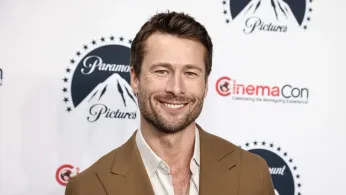
3 hours ago
Glen Powell Opens Up About Losing 'Glee' Role to Chord Overstreet—and the Surprising Friendship That Followed
READ TIME: 3 MIN.
Glen Powell, best known for roles in ‘Top Gun: Maverick’ and ‘Anyone But You,’ has opened up about a pivotal moment early in his career: losing the coveted role of Sam Evans on ‘Glee’ to Chord Overstreet, an experience that unexpectedly led to the two actors sharing a home and forging a supportive friendship. Powell’s reflections have sparked conversations about resilience, the emotional realities of show business, and the enduring impact of LGBTQ+ storytelling in mainstream television .
During a recent interview, Glen Powell recounted the intense audition process for the role of Sam Evans—a character who would go on to become a fan favorite in the LGBTQ+ community for his journey of self-discovery and acceptance. Powell described reaching the final stages of casting before ultimately losing the part to Chord Overstreet. Despite his disappointment, Powell said the experience proved transformative in unexpected ways .
Shortly after the casting decision, Powell and Overstreet found themselves living together as roommates in Los Angeles. “It was a strange twist of fate,” Powell shared, reflecting on the unusual dynamic of supporting each other’s dreams—even as one’s breakthrough role had been the other’s near miss. “I was there for the whole rollercoaster,” Powell said, emphasizing the camaraderie and empathy that defined their friendship .
The story of Sam Evans—and by extension, the actors who vied to play him—remains significant for LGBTQ+ audiences. ‘Glee’ premiered in 2009 and quickly became a cultural force, celebrated for its diverse cast and for tackling LGBTQ+ issues with unprecedented visibility on network television. The show introduced audiences to a spectrum of queer characters, from Kurt Hummel’s coming-out journey to Santana Lopez’s struggles with identity, and played a key role in normalizing LGBTQ+ experiences for mainstream viewers .
Sam Evans, played by Overstreet, was a straight character but often served as a supportive ally to his LGBTQ+ friends on the show. The casting process for Sam Evans, as detailed by Powell, highlights the importance of allyship—not only on-screen but among the actors themselves. Powell’s journey after losing the role did not diminish his respect for the show’s impact or his appreciation for the friendships he formed through the audition process .
For many LGBTQ+ individuals, Powell’s experience resonates beyond the world of acting. The process of facing rejection, finding unexpected community, and learning to celebrate others’ successes are universal themes. Powell’s decision to share his story publicly underscores the importance of vulnerability and mutual support—values often championed within queer communities.
In his interview, Powell also acknowledged the emotional challenges of being passed over for a major role but stressed the importance of resilience and gratitude. “You have to keep showing up,” he said. “Sometimes what feels like a setback is actually setting you up for something better” .
Powell’s story arrives at a time when Hollywood continues to grapple with issues of inclusivity and representation. While ‘Glee’ broke ground by providing LGBTQ+ characters with complex, authentic storylines, there is still progress to be made—both on-screen and behind the scenes . The enduring popularity of the show serves as a reminder of the power of diverse storytelling and the ripple effects that inclusive casting can have on audiences—especially LGBTQ+ youth seeking affirmation and visibility.
Industry advocates have pointed to ‘Glee’ as a model for future productions, emphasizing the value of casting not only for talent but for genuine understanding of the lived experiences depicted on screen . The friendship between Powell and Overstreet is a testament to the ways in which allyship and solidarity can extend far beyond the set.
Glen Powell’s candid reflection on his near-miss with ‘Glee’ offers a rare glimpse into the emotional undercurrents of Hollywood’s casting process. For LGBTQ+ readers, it is a reminder that behind every role is a network of relationships, stories of perseverance, and moments of personal growth. Powell’s journey exemplifies a spirit of resilience and openness that resonates with many who have faced setbacks and found strength in community.
As LGBTQ+ representation continues to evolve, stories like Powell’s highlight the importance of inclusive, supportive environments—both in entertainment and in everyday life. By sharing his experience, Powell not only honors his own journey but also contributes to a broader conversation about empathy, authenticity, and the transformative power of queer visibility in media.






